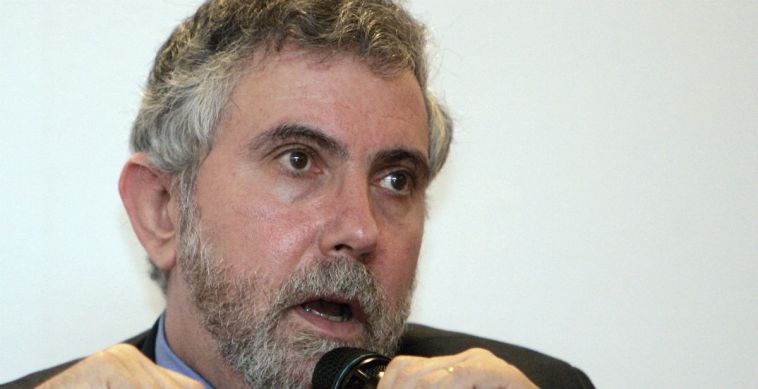The national debt just hit $18 trillion, and Washington continues to spend money like a trust fund baby who had his fortune unlocked at too young an age: War with ISIS? Put it on the credit card. Sequestration budget cuts? Cancel them. Illegal immigrants eligible for Social Security? Get me the executive order pen, stat.
Videos By Rare
Three years ago there was more concern over the government’s lopsided finances. Simpson met Bowles, a supercommittee was assembled, and the sequester was implemented as a threat to lawmakers who refused to cut the fat.
Today that spasm of fiscal responsibility is all but forgotten. The crisis of the moment is whether the GOP’s continuing resolution will fund President Obama’s amnesty, not whether it will actually reduce spending.
Why this complacency in the shadow of the greatest wave of red ink in human history?
There are three reasons.
The first is political. Congressional Republicans have twice tried to use their leverage in the House to force budget cuts, and both times it’s backfired. The first, the debt ceiling fight in 2011, was interpreted by the public as congressional dysfunction and damaged the tea party brand. The second, the Ted Cruz-pioneered government shutdown over Obamacare, helped send Terry McAuliffe to Richmond. Thanks to its tactical misfires, the GOP is much more gun-shy about budget cuts than it used to be.
The second reason is cultural. Washington may have hosted the supercommittee charade in 2011, but it hated it. The bias in This Town is towards action: most people go into politics to make the world better, not scale back their own power. Consider the sequester, that gentle graze of fiscal conservatism, regarded by Washingtonians as a harbinger of world’s end. Nothing—not Middle East wars, not even social conservatism—infuriates America’s capital city like the idea of cutting back.
The third reason is economical, or supposedly so. Neo-Keynesian economists claim that debt is no longer a potent issue because debt cutters have been defeated in the arena of ideas—or, as the reliably demagogic Paul Krugman put it, the fiscal fever has broken. To make this point, they’ve constructed a little morality play populated by heroic neo-Keynesians and world-destroying deficit hawks.
There was “Growth in a Time of Debt,” a study conducted by economists Carmen Reinhart and Kenneth Rogoff, which found that economic growth dropped off as debt increased. An error was later discovered in their research, which for neo-Keynesians was the equivalent of the scene in the movie Clue after the police chief says “The kingdom of heaven is at hand”: the floodlights turn on, the cops rush out, and the austerians are hauled off to prison. On and on Krugman droned, claiming the Reinhart-Rogoff mistake discredited any and all evidence supporting debt reduction.
Never mind that case for a smaller budget doesn’t hinge on one study. And never mind either that, once the error was accounted for, Reinhart-Rogoff still found that debt slows economic growth, albeit by a smaller amount.
Then there was the morality play’s great tragedy: the UK, which, according to Krugmanian folklore, implemented austerity to close its deficit and then sank into stagnation. This, they crowed, showed why addressing debt during a recession was destructive. But there’s a snag: Britain’s austerity was all tax increases. The supposed “spending cuts” were actually cuts to the rate of spending, meaning the budget increased but at a slower-than-projected rate.
Then in 2013 Britain decided to try authentic spending reductions. Neo-Keynesians swarmed Westminster. IMF head Christine Lagarde put Britain on notice. A year later this was the Daily Mail headline: “UK economy now best in the world, as new figures show growth even faster than first thought, outstripping US, EU, Japan.” The scolds at the IMF found themselves hailing Britain as the most flourishing major economy in the world. Though expansion has since slowed a bit, the UK is still in considerably better shape than its stimulus-heavy European neighbors. And all this after shrinking its civil service workforce by almost a fifth.
Last year economists at the Organization for Economic Cooperation and Development posed an inquiry that comes up often in their profession: how did we get everything so completely wrong? Specifically, why had they misjudged so much about the economic recovery? The OECD’s final report zeroed in on three factors: globalization, lousy banks, and—surprise, surprise—burdensome regulations. Despite years of clamor, excessive austerity wasn’t named as a culprit. The study also warned that economic forecasters were guilty of “groupthink.” Perhaps it’s time they removed a certain New York Times columnist from their bookmarks bars.
As Bernard Lewis once said: “In the history of human thought science has often come out of superstition. Astronomy came out of astrology. Chemistry came out of alchemy. What will come out of economics?”
None of this is to suggest that debt reduction cured Britain or is good for growth. But neo-Keynesianism has claimed as an ironclad rule that spending cuts wreck economies. That claim is now in tatters.
Consequently we should reexamine the national debt as an issue. Not only is an $18 trillion credit card bill economically unsound, it’s also a grossly immoral hollowing out of the next generation. Somebody has to pay that money back.
If the UK can work to reduce their debt, why can’t we?

